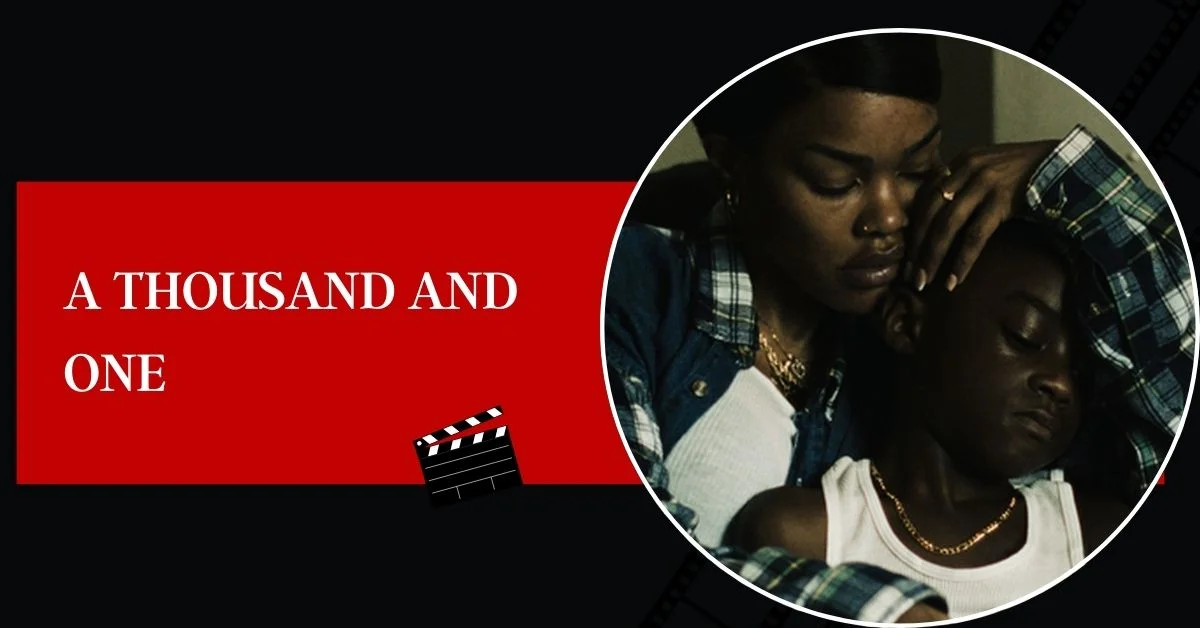Anyone who has been keeping up with Teyana Taylor, a woman of many talents, knows that she can switch identities on the fly, whether she’s channeling her s*xuality for a music video or baring her soul on a reality show. Recently, she has portrayed a New York City single mother on a complex quest for forgiveness and family reunification.
A.V. Rockwell’s “A Thousand and One,” in which Taylor portrays Inez de la Paz, opens in theaters on March 31. The film, which has already won an award at the Sundance Film Festival, depicts sympathetically the struggles of modern Black women in childrearing, including economic hardship, housing instability, and mental health issues.
Rockwell reveals the complex nature of being a Black mother in a way that makes other Black women question how much they, too, have internalized negative stereotypes.
I think that even though we are a community where a sisterhood exists, in many ways, underprivileged Black women still feel the most ostracized, and so it was so important to me that this character speaks for underrepresented Black women,” Rockwell explains.
The director, a native New Yorker, sets her drama in a gentrifying neighborhood to highlight the plight of a young, “free-spirited,” single mother who steals her son from foster care and struggles to provide for him.
The Struggles of Black Mothers: Reflections on Inez‘s Story
The setting (1990s Harlem) and the main character’s unique difficulties are both deliberate choices that force the audience to question their preconceived notions about disadvantaged Black mothers and, ultimately, shed light on the ways in which we manage motherhood despite broken social structures.
This is an essential story, especially at a moment when the lack of support for Black women is all too apparent in real life, in the form of still-surging maternal mortality rates and mental health challenges. Rockwell tells me that in her mind’s eye, women like Inez are portrayed as one-dimensional or simplistic; or as a necessary but “innately problematic” support system, in iconic Black films from the ’90s.
During the film, I found myself praying Inez would catch a break. In addition to empathizing with her pain, I also recognized that some of my own motherhood-related frustrations were rising to the surface. Black mothers are not a monolith, but we all deal with the effects of structural racism and misogynoir in our daily lives, including how we parent, love, and defend our children.
As a Black mother and writer, I know what it’s like to encounter obstacles that seem insurmountable, such as trying to find work when you can’t afford child care or working multiple jobs but still not making enough to cover basic living expenses. These moments have left me feeling depressed, angry and like a failure, all at the hands of a system that thrives on keeping people like me underpaid and undervalued.
Check out more movies details we have covered:
- When Will Mr. Monks Last Case: A Monk Movie Be Released?
- Where is Bruce Campbell Hiding in the Upcoming Movie Evil Dead Rise?
A Tribute to the Complexity of Black Women‘s Experiences
Taylor’s character still manages to find and emphasize the profound joy that comes with motherhood, despite living in a culture that does not recognize the humanity of Black women.
At times, Inez exemplifies “the Sapphire,” a stereotype of a Black woman who is brash, violent, overly s*xualized, and difficult to work with. This is just one of many negative preconceptions about Black women, but it’s one of the most persistent.
Black women in media in the year 2021 were found to be stereotyped as hypers*xual, aggressive, and unattached. These representations play a huge role in shaping Black women’s experiences in real life, even though Black women continue to show how multifaceted and emotionally rich they are.
You can also take a look at this below Tweet we have provided:
I watched “A Thousand And One” the other night and it’s still on my mind. It takes you on a deeply emotional and moving multi-year story between a mother and son, and a changing city landscape, that is full of heart and soul. Teyana Taylor’s performance is simply incredible pic.twitter.com/AwZ2XsndDZ
— Ema Sasic (@ema_sasic) March 23, 2023
That really bothered me,” Rockwell says. A backstory for their behavior or an expression of sympathy for their hardships was nowhere to be found. So, I was very conscious of paying tribute to these elements as I related this woman’s story.
Rockwell’s own history of coming up in a transitioning New York allowed her to depict the unique experience of raising a Black child in a city where they are twice as likely to experience poverty as white children. Rockwell sensed a profound metaphor when she wrote the picture. “To me, Inez was New York City personified,” she adds.
Throughout the film, Inez constantly fights for the people she loves. However, Rockwell’s intricate maze of difficulties begs the question: Who is standing up for Black women?
“By the end, I think there is this clarity she faces,” Rockwell says. “Kind of like, ‘I am a person who not only feels loved but loves herself.’”
If you want to read more articles about tv shows and movies then you can bookmark our site venturejolt.com.
